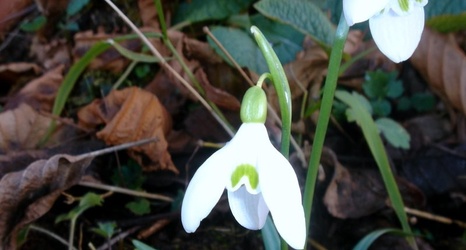If you have a garden, there’s a good chance it is filled with signs of climate change, though they might not always be what you would expect.
It seems obvious that as global temperatures increase, flowers might be inclined to bloom earlier. But Will Pearse, an assistant professor in Utah State University’s Department of Biology, had a hunch that the effects of a changing climate could be more profound.
So Pearse, who has a background in evolutionary ecology, used unconventional statistical techniques to show that flowering plants may indeed be struggling to adapt — not just blossoming earlier in some cases but becoming less consistent overall in when they bloom.
